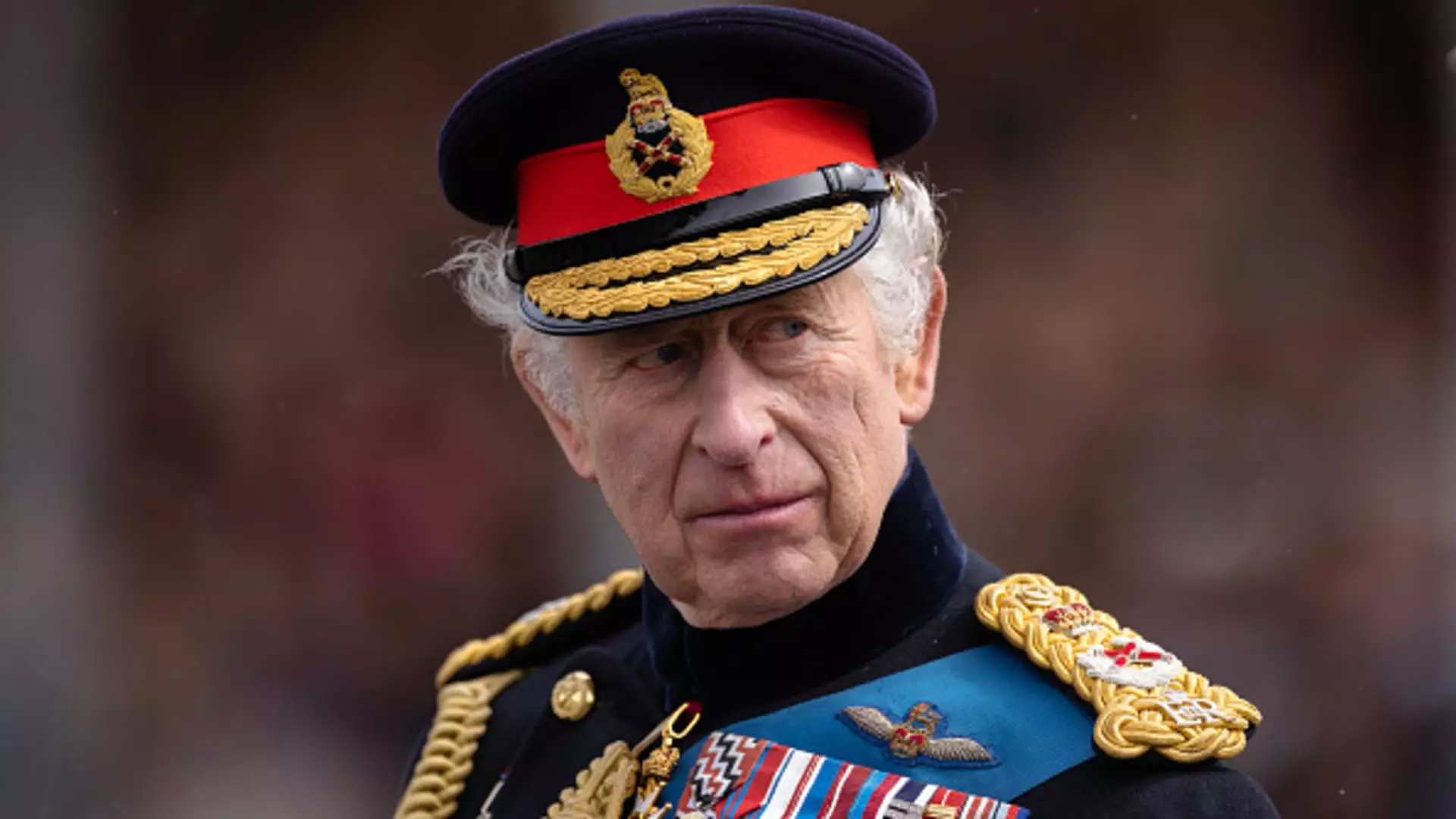The recent financial report revealing an astounding increase in The Crown Estate’s profits raises several questions about the sustainability and implications of monarchy funding in the United Kingdom. With King Charles III set to receive a significant pay raise to £132 million ($178 million) due to the jump in profits, this situation underscores not only the economic resilience of the UK’s royal financial structures but also the public’s perspective on royal expenditures amidst broader economic turbulence.
According to the latest annual report, The Crown Estate has experienced a staggering 148% increase in profits, surging from £443 million to £1.1 billion in just one fiscal year. This leap is attributed primarily to lucrative agreements concerning offshore wind projects—a reflection of King Charles’s longstanding advocacy for sustainable energy initiatives. The management of The Crown Estate operates under a unique arrangement where profits contribute to the national treasury, allowing the monarchy to receive a portion, specifically 12% of the profits as calculated on revenues from two years prior.
While these results showcase the effectiveness of investments in renewable energy, they also point to an underlying tension regarding how these profits translate into royal funding. Critically, the decision to lower the percentage of profit forwarded to the royal household last year means that, instead of the potential £275 million, the monarchy will only collect £132 million in the coming year.
The Sovereign Grant system has long been a contentious topic, sparking debate over the appropriateness of using taxpayer money to support royal expenses. The upcoming increase derived from The Crown Estate’s performance contradicts public sentiment, which has lately been shifting towards questioning the necessity and scale of royal spending. As the 51% increase suggests a growing royal budget, it begs the question: how can the monarchy justify such expenses while many citizens endure rising living costs?
Detailed figures released by Buckingham Palace reveal the king’s total expenditure for the year reached £800 million, including staffing costs, property maintenance, and travel expenses. Of particular note is the £47 million allocated for property upkeep, which raises concerns about luxury versus necessity in royal expenditures.
The financial reports set against the backdrop of a cost-of-living crisis provoke a critical analysis of the monarchy’s financial ethics. As the public grapples with rising inflation and economic uncertainty, the appropriateness of royal allowances becomes a key point of contention. Is it sound fiscal policy that the monarchy, an institution purportedly steeped in tradition and representative of national dignity, substantially benefits from financial windfalls derived from public domain assets?
Moreover, the substantial costs associated with high-profile events like the king’s coronation—the overwhelmingly expensive ceremony signaling the transition of power—spark further debate. Given the contentions surrounding national austerity measures, stakeholders from various sectors are challenged to reconcile the expenses of a ceremonial monarchy with pressing social needs.
The forthcoming legislative adjustments that will allow The Crown Estate greater investment autonomy could pave the way for enhanced contributions toward national objectives, including energy sustainability and ecological regeneration. However, this ambition must be accompanied by transparency and a keen awareness of the social contract between the monarchy and its citizens. Continuous public dialogue surrounding financial accountability is essential to maintain legitimacy in the eyes of the citizenry.
With King Charles III’s reign just beginning, the imperative for a cost-effective and ethically responsible monarchy is louder than ever. It reflects a need for the institution to adapt to contemporary values while balancing its historical significance. As the royal family prepares to navigate these transitions, the future of the monarchy will depend not only on its financial acumen but also on its ability to genuinely connect with and serve the ethos of modern Britain.
The latest financial revelations regarding The Crown Estate provide a rich tapestry for dissecting the complexities inherent in royal financing and its broader implications. As King Charles III embarks on his reign, the intersection between increased royal income, public sentiment, and sustainable practices will remain a pivotal area of scrutiny, ensuring that the monarchy evolves in tandem with the society it aims to represent.


Leave a Reply